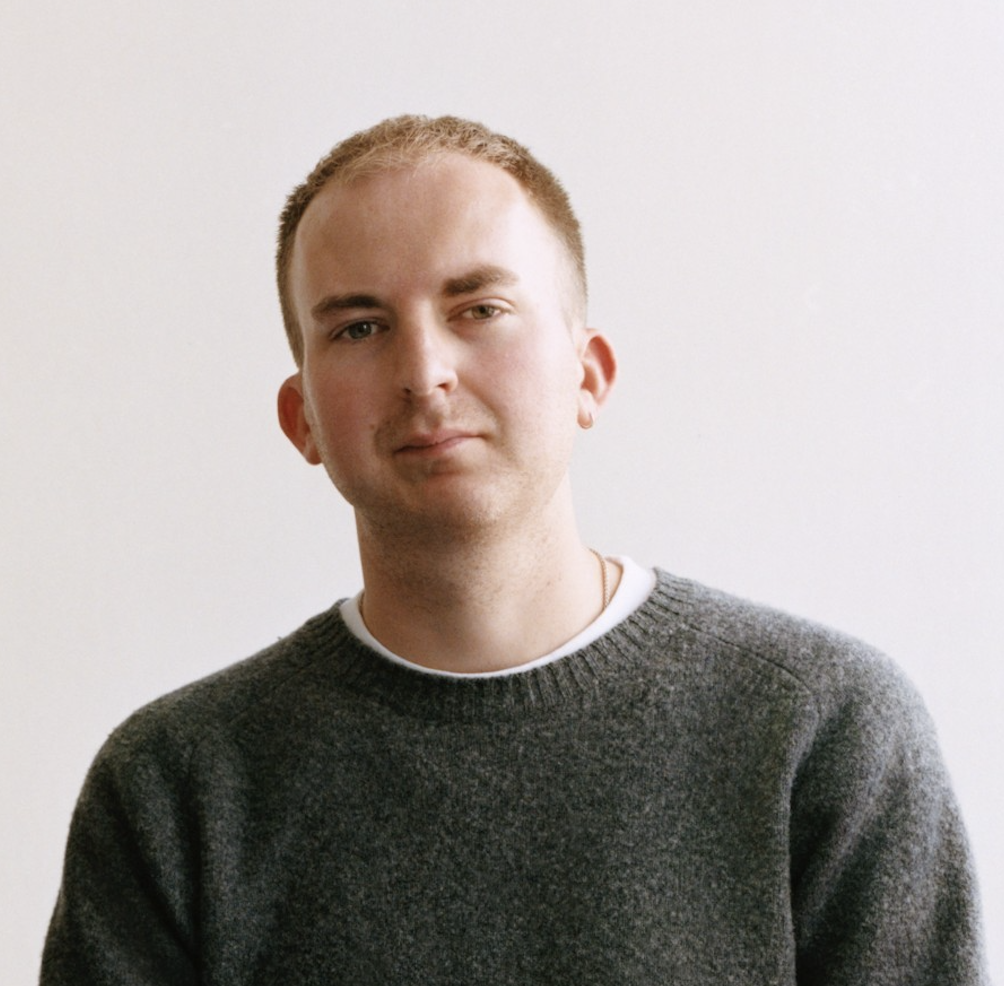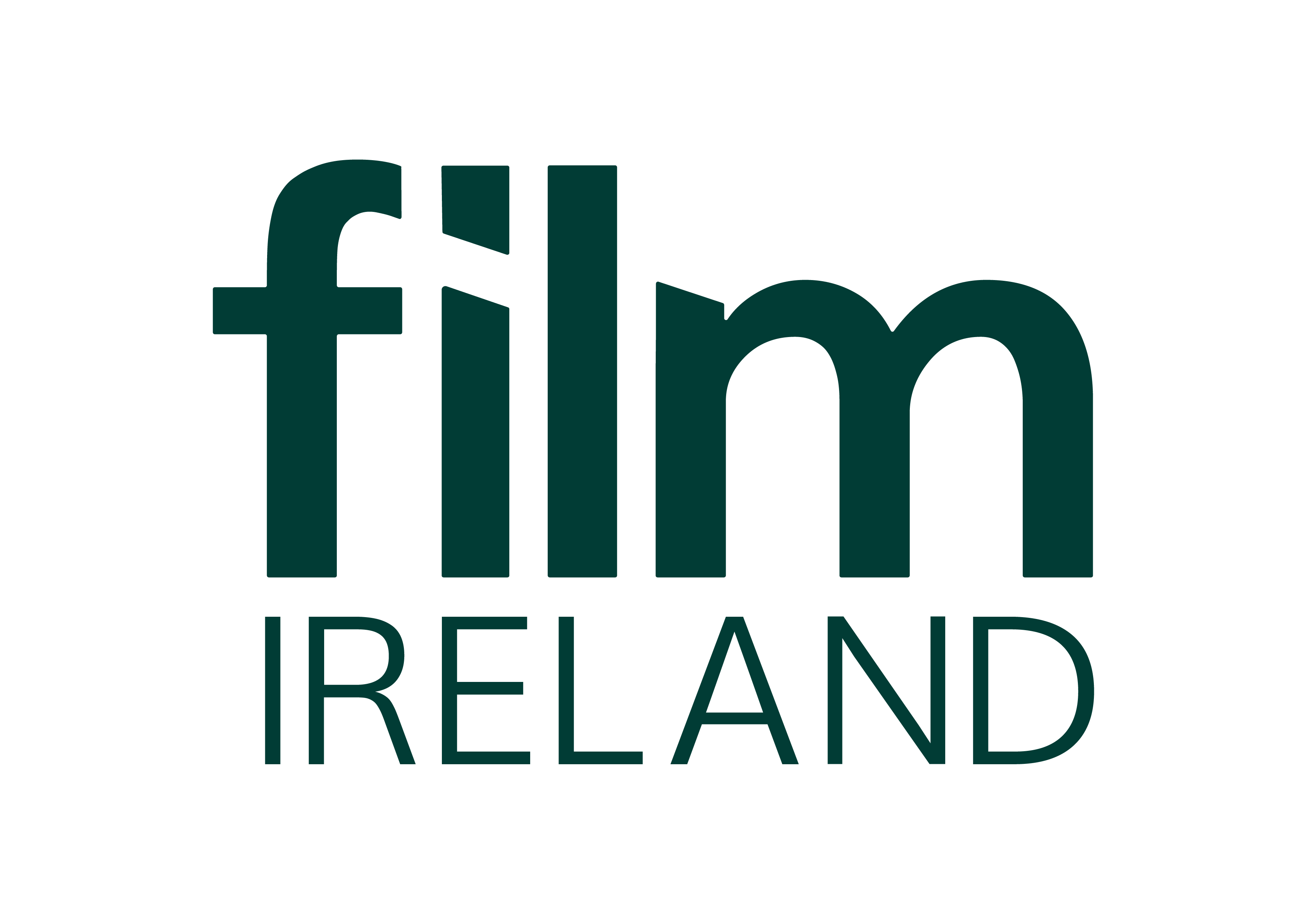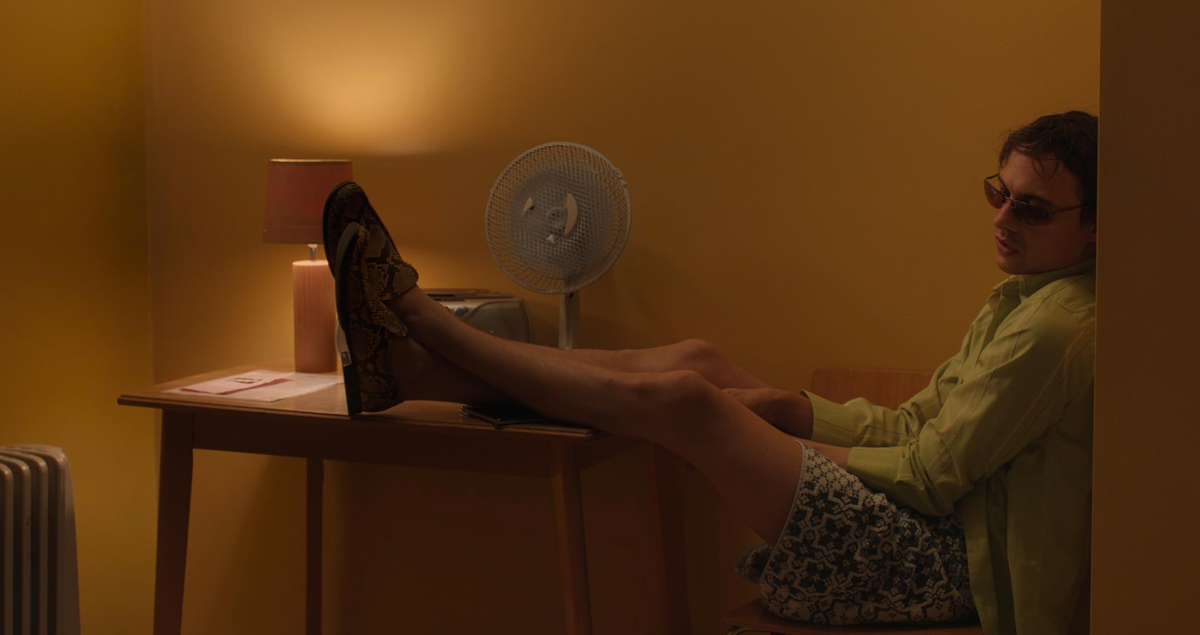Film Ireland’s Cannes correspondent Shannon Cotter chats with Archie Pearch, producer of Cannes smash hit Urchin, which received the prestigious Un Certain Regard Award for Best Actor as well as the FIPRESCI Critics’ Award. Having worked as assistant to screen legend David Heyman for several years, Pearch recently co-founded Devisio Pictures with long-term collaborator Harris Dickinson, steadily making his move as one of the most exciting producers in the current film landscape. Shannon discusses Cannes reactions, last-minute location sourcing, and the importance of showcasing diverse voices.
[This interview and responses have been edited for clarity]
SC: It’s been a little over a month since Urchin premiered in Cannes. How has the comedown been since the festival, if there’s been any?
AP: Honestly, it hasn’t really sunk in yet; there’s been no comedown. Since Cannes, the response has been incredible, and the momentum just keeps building. We’ve been blown away by how much love the film has received. Everyone who’s seen it tells us it’s one of the standout films from Cannes this year. And for those who haven’t caught it yet, they constantly ask, “When’s the next screening?” So yes, it’s been a lot to take in, but in the best possible way. Right now, our focus is on the UK and US theatrical releases and looking to its wider distribution. We feel like we’re in a very good place.
SC: I just want to go back to the start quickly because obviously you’ve been a longtime collaborator with Harris Dickinson. How did that partnership start, and how has it been watching this journey develop together?
AP: Yeah, we met about eight years ago and hit it off straight away. We realised we had very similar sensibilities. He was looking for a producer for a short film, and we were introduced through mutual friends. From that first meeting, we just knew we wanted to work together, and the experience of making that short was a really positive one.
Since then, watching him transition into features has been amazing. Harris is, of course, known as an incredibly talented actor, and this project establishes him as a filmmaker.
At the heart of it all is a film with a powerful, urgent story, and that, combined with Harris’s vision, makes it incredibly exciting.
SC: Last year you and Harris announced the creation of Devisio Pictures. Out of all the scripts you have in development, why was this the first story that you were drawn to?
AP: It’s interesting – when we founded Devisio, it was actually off the back of getting this film commissioned. When we started talking about the kind of slate we wanted to build, it was immediately clear that this had to be the first project to launch the company. It’s a deeply personal story that shines a light on struggles so many people face, while still capturing the humour and humanity that can exist even in the darkest moments. It felt urgent. And in many ways, that’s exactly what we’re trying to do at Devisio: to be bold, to take risks, and to elevate everything we work on. We want to champion and support filmmakers, and to push all of our projects as far as they can go. This film was our first stepping stone in showing people what we’re about – taking what might seem like a bleak story about homelessness, something incredibly personal to Harris, and pushing it beyond what people might expect. We want to make film and TV for the audiences and listen to what people want and what filmmakers want to say.
SC: What was the experience of going from producing short films to a feature film like this? Was there a major difference that you found moving up in such scale?
AP: You know what? It’s funny, because every film is totally unique and comes with its own set of challenges. For me, the transition from the short to the feature was actually fairly smooth in principle. But this film, specifically, was incredibly complex. We had a really ambitious shoot with around 39 locations over 25 days, which is no small feat – especially in London. I remember sitting in my office with the other producer, Scott, just looking at the schedule and saying, “How are we going to do this? Like, physically, is it even possible to shoot six locations in one day?”
I think the reality is, every project presents its own hurdles, and you deal with them as they come. The biggest difference between a short and a feature is really just scale and pressure. But our mindset was always, “How far can we push it?” And it’s a real testament to the crew and cast, because they gave it absolutely everything.
I still remember one of the final nights of the shoot – we were doing a split day, and we lost our last location at 2.30am. We were supposed to be shooting at 3am. And somehow, Karin Kavanagh, our incredible location manager, managed to find a new spot at the very last minute. That’s just one example, but it speaks to the level of commitment from everyone involved. Harris and I still talk about it now. We genuinely couldn’t have made this film without that kind of team.
So yes, the format changes, but...
the real difference is who you surround yourself with. We were incredibly selective about who we brought on, because we knew from day one this was going to be a tough shoot. And in the end, it’s the people who made it possible.
SC: Obviously you and Harris have developed a vast network of collaborators over the years. What was your process when searching for the cast and crew for this film?
AP: We knew straight away that the people we were hiring were the right ones. Anna Rhodes, our production designer, came in with incredible boards from day one. She just completely understood the film. Cobbie Yates – an absolute dream of a costume designer – was all in from the start. Even in the earliest conversations, his level of commitment was clear.
Our editor, Rafael Torres Calderon, came over from Paris and was phenomenal in the edit. He really pushed and challenged the film in all the right ways. And then Josée Deshaies, our DOP. She had never been to London before, but she brought this beautiful energy and kindness. She blew us away at every level. I’ve always believed that if you lead with kindness from the top down, it sets the tone for the whole production – and that’s exactly what happened here.
And in terms of casting, we had the incredible Frank Dillane at the centre of it all. From early on, it was clear he was our lead. Every day on set I was completely blown away by what he was giving to the role. We worked with Shaheen Baig to find him, and I remember Harris texting me after meeting him saying, “We’ve found our Mike.” We met him two weeks later, and that was it.
SC: Going back to your earlier experience with David Heyman, did you feel like working with him on massive projects such as Barbie and Wonka lent to your producing abilities now?
AP: Totally. In my eyes, he is one of the best producers out there, and I feel incredibly fortunate to have learned from him. I was in the trenches with him for just over five years, working on everything from Marriage Story to Fantastic Beasts, Wonka, Barbie, and while he developed so many other projects. He’s an extraordinary person. His humility and his approach to producing are things I carry with me every day. I learned so much from him, and I’m genuinely indebted to him. I don’t think I could have made Urchin without the experience I gained working alongside him. It was really the combination of my own ambition and the foundation he gave me that allowed me to go off and produce this.
SC: Urchin received critical acclaim, it came out as one of the best-performing features at Cannes, and Frank [Dillane] won Best Actor in Un Certain Regard. What was your reaction, and the team’s reaction, to that kind of praise after such a complex shoot?
AP: It wasn’t clear early on that we were going to get as much of a positive response as the film got. We’d showed it early to the press, but it’s not really until you’re sitting in that room, then walking out and seeing the reviews start to roll in, that you think, “Is this real?”
We were so nervous, and there were just so many emotions. It was five days of pure adrenaline. Then we landed back in the UK, and literally the next day, Harris [Dickinson] was off rehearsing for the Beatles… and we got a call saying, “You need to come back.” It was an incredible feeling and a full testament to the cast and crew that put so much time and love into this film. We could never have done it without them. Every award is a reflection of that.
It feels like a real moment – something we’re going to carry forward. Harris is such an incredible filmmaker, he completely deserves this. We’re all just so proud.
SC: In terms of UK distribution, do you know a release date yet?
AP: We have lots more festivals planned, and also we potentially have a release date, but we can’t speak to it just yet.
SC: At the moment, Devisio Pictures has about 17 projects in development. How would you describe the overall feel of the company and what types of films you want to be making?
AP: I think for us it goes back to what I said earlier. It’s about telling bold, elevated, universal stories that still feel original. We want every film we make, and every filmmaker we work with, to reach as wide an audience as possible. And at the heart of it all is collaboration. We’re really focused on building strong, meaningful relationships with both emerging talent and established voices.
Our slate is pretty eclectic, but there’s always a clear throughline: it’s about finding distinct perspectives and championing filmmakers with something unique to say. Sometimes it’s instinctive – like, I read a script the other day and immediately knew, “I have to make this film.”
And of course, a lot of it comes down to trust. Through the relationships that Harris and I have built over the years, and now with our wider team, it’s really about creating a sense of family. We want this to be a space where people feel supported, where the work is ambitious but the process is still enjoyable. The industry can be tough, so it’s important to have fun along the way too.
What we’ve done here feels like a stepping stone, but also a real statement of intent. A stake in the ground that says: this is the kind of story we want to tell. Now, how do we push it even further? How do we elevate it?
SC: Can you give us a hint on the next production or script you might be working on?
AP: Yes, we are working on several projects at once. We should have a film go into production later this year, with two more filming at the top of next year. We are also developing Harris’s next project he will star in post-Beatles, but we can’t say anything else just yet.
A special thanks to Archie Pearch for the interview and the Premier Communications team.

Archie is a British producer from South London. He is the co-founder of Devisio Pictures, a London and New York-based production company he launched in 2022 with longtime collaborator Harris Dickinson. A proudly independent voice, Pearch brings a perspective shaped by his experience across creative, cultural, and queer communities. Pearch began his career at Working Title before joining David Heyman at Heyday Films in 2018, where he worked on major titles including Once Upon a Time in Hollywood, Marriage Story, White Noise, Wonka, and Barbie. His independent work has since screened at prestigious festivals including the Cannes Film Festival, BFI London Film Festival, BFI Flare, and LSFF, earning awards globally. Backed by Tricky Knot, Devisio champions filmmakers with bold, distinctive visions across film and television. The company’s debut feature, Urchin – written and directed by Harris Dickinson and supported by BBC Film, BFI, and Tricky Knot – premiered in Un Certain Regard at the 2025 Cannes Film Festival, where it won Best Actor and the FIPRESCI Critic’s Prize. Pearch’s years of experience across both studio and independent filmmaking help shape Devisio’s eclectic 20-project slate, which is as commercially ambitious as it is artistically bold.

